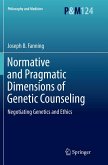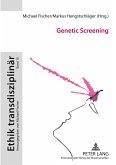Based on a variety of empirical materials the study reveals dramatic differences between the way that the German and Israeli societies address the question of a life (un)worthy of living: while in Germany, social, cultural, religious and legal conditions restrict the selection of embryos based on prenatal diagnosis, in Israel they strongly encourage it.
A close comparative analysis of the ways that these two societies handle the delicate balance between the quality and sanctity of life illuminates the controversy around reproductive genetics in an original and provocative way. The study is also innovative in its use of contemporary social theory concerning the politics of life in comprehending the differences between two societies positioned at opposite extremes in their adoption of reproductive genetics. It thus offers an original cross-cultural discussion concerning present-day techno-medical manipulations of life itself.
A close comparative analysis of the ways that these two societies handle the delicate balance between the quality and sanctity of life illuminates the controversy around reproductive genetics in an original and provocative way. The study is also innovative in its use of contemporary social theory concerning the politics of life in comprehending the differences between two societies positioned at opposite extremes in their adoption of reproductive genetics. It thus offers an original cross-cultural discussion concerning present-day techno-medical manipulations of life itself.
From the reviews: "This is a unique and courageous book. Yael Hashiloni-Dolev studied the field of reproductive genetics in Israel and Germany, and found out that while in Germany social, cultural, legal and religious conditions restrict the selection of embryos based on prenatal diagnosis, it is strongly encouraged in Israel. This unexpected finding is brilliantly analyzed by the author. Thus this excellent book must be read and discussed by social scientists, human geneticists, genetic counsellors, bio ethicists and medical students." (Benno Müller - Hill, Dr. rer. nat. em. Prof. at the Institute of Genetics of the University of Cologne, Germany) "An important contribution of the book is the examination of the cultural, national, institutional and personal background and attitudes of genetic counsellors. ... This is a very interesting and useful book exemplifying how two modern societies can employ scientific, legal, and ethical reasoning differently. ... Overall, the book is written in an eloquent and easy-to-read way, and its contribution to the literature on the sociology of health and the study of cultural bioethics is more than evident." (Daniel Sperling, Medicine, Healthcare and Philosophy, Vol. 12, 2009)








